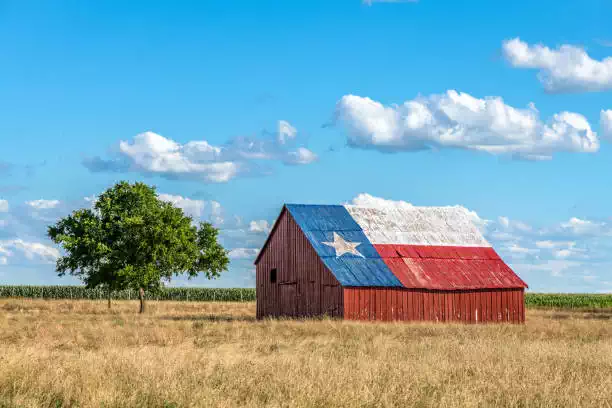Grants for Seniors in Minnesota
Last Updated on April 18, 2024 by Rachel
Help for Seniors in Minnesota – 30 Assistance Programs
Minnesota, known as the “Land of the 10,000 Lakes,” is one of the very senior-friendly states considering the low-cost housing opportunities and outdoor activities. Even though it might be a tough state when its hot summers and cold winters are taken into account, the AARP Magazine ranked Minnesota as one of the healthiest places to live for the elderly. Seniors can get benefit from various programs and services that are provided by the state authorities, the federal government, and local social organizations.
State Resources for Seniors
Minnesota hosts a wealth of resources to help seniors who may be experiencing challenges. The state sponsors and administers some programs to meet the needs of the challenged residents. Other programs are not directly administered but are offered in collaboration with non-profit organizations. Many links to these resources are provided by the Department of Human Services online at https://mn.gov/dhs/people-we-serve/seniors/.
Financial Assistance
Minnesota General Assistance (GA) can help low-income seniors get monthly financial resources. Seniors over the age of 555 can apply for GA to get up to $203 per month. This program serves as an interim source of assistance while seniors work towards more permanent programs. Emergency General Assistance is also available once a year to provide urgent help for basic needs. For more information, visit https://edocs.dhs.state.mn.us/lfserver/Public/DHS-2062-ENG.
Supplemental Security Income (SSI) is a federal program that provides financial aid to seniors over the age of 65. This program is administered by the Social Security Administration and tries to give support to low-income seniors. SSI benefits are provided on a monthly basis to meet the basic needs of seniors. Eligibility for the program is determined by income and asset values of the applicant. Depending on individual needs, the amount of money awarded can vary. Seniors can find more information on SSI at https://www.ssa.gov/benefits/ssi/?.
Minnesota Supplemental Aid provides monetary assistance to help seniors meet up with costs of living. The program helps seniors who receive SSI benefits by providing additional income for them. However, elderly residents who are not eligible for SSI may still be eligible for Minnesota Supplemental Aid. Seniors who live alone can get up to $81 in cash per month to pay for their basic needs. Individuals interested in the program can visit https://edocs.dhs.state.mn.us/lfserver/Public/DHS-1888-ENG for more details.
The Minnesota Family Investment Program (MFIP) is a financial and food assistance program designed for low-income families with children by the State of Minnesota. This program offers to help with both financial and food needs. Seniors who are not able to work and have a child that has to take care of are qualified for the MFIP. Eligible families can get a monthly benefit from this program for approximately 60 months. This financial help covers both cash and food support. To learn more about the MFIP, please visit https://mn.gov/dhs/people-we-serve/children-and-families/economic-assistance/income/programs-and-services/mfip.jsp.
Employment Assistance
The Senior Community Service Employment Program was created by the Minnesota Employment and Economic Development for senior citizens. People who are 55 years of age or above who are having financial problems and looking for a job are qualified for this support program. It presents job training sessions and helps to improve the career movements of the applicants. Most of the employment opportunities for seniors are part-time. Seniors who wish to become an employee or develop their job skills are encouraged to apply to this program. Find out more at https://mn.gov/deed/job-seekers/find-a-job/targeted-services/older/ or make a phone call at 651 259 7560.
Housing and Rent Assistance
Section 202 Minnesota Rental Housing Program is a federally subsidized rent assistance program specifically designed for older residents whose age is 62 years old or older. Eligible low-income individuals can choose their house, apartment, or flat and 70 percent of their rent will be paid by this program. This program also offers housing units that have hot meals, transportation service, and housekeeping depending on the economic condition of the applicant. For more information, please visit https://www.hud.gov/program_offices/housing/mfh/grants/section202ptl.
The Bridget Rental Assistance Program was created and has been funded by the Minnesota Housing for low-income people who are on the waiting list of the Section 8-Housing Voucher Program. This program offers to help with rent payments up to a certain amount based on the economic condition of the applicant. To see more information and apply, please go to https://www.mnhousing.gov/housing-help.html or dial 800 657 3769.
The Minnesota Supplemental Aid Housing Assistance is managed by the Department of Human Services for people with disabilities and their rent is more than 40 percent of their total household income. Eligible seniors are able to have $392 for each month. However, the amount of this grant can vary depending on the candidate’s case. To apply, please follow the link https://mn.gov/dhs/people-we-serve/adults/economic-assistance/housing/programs-and-services/msa-housing.jsp.
Home Repair Grants
Home Repair Grants For Seniors are also offered all over the country to help elderly adults keep their homes in good condition and safe.
The Minnesota Fix Up Home Improvement Loan Program issues loans to eligible low-income residents to help them carry out repairs on their homes. Seniors can get up to $5,000 of unsecured loans to make necessary repairs and modifications to their homes. The loans have a low interest rate and a repayment period of up to 20 years on some loans. This spreads out the cost and makes it more manageable. Visit https://www.mnhousing.gov/housing-help.html for more details.
The Section 504 Home Repair Program is a federal program that provides resources that seniors can use to repair their homes. Grants of up to $10,000 are available for seniors who are aged 62 and above. These grants can be used to carry out repairs aimed at resolving issues that threaten health and safety, or to carry out accessibility modifications on the home. Residents who are not up to 62 years old, or those who need more than $10,000 for their homes can obtain a loan of up to $40,000 for home repairs. The loans have a 20-year term and an interest rate fixed at 1%. More details can be obtained by visiting https://www.rd.usda.gov/programs-services/single-family-housing-programs/single-family-housing-repair-loans-grants/mn.
Healthcare Assistance
Minnesota State Health Insurance Assistance Program is a special service for older residents who would like to be informed of their health issues. Caregivers or family members can also get in touch with this program to consult about the health of seniors. Eligible candidates may benefit from the Medicare Part D plan and healthcare insurance in the long run. To learn more, please go to https://mn.gov/senior-linkage-line/ or call 800 333 2433.
The Elderly Waiver Program is caregiver services for people who are 65 years of age or older. Some senior citizens can live at their homes but may need more comprehensive healthcare that requires professional help in the long term. Seniors who already receive Medical Assistance are qualified for this program. For further information, please visit https://mn.gov/dhs/people-we-serve/seniors/services/home-community/programs-and-services/elderly-waiver.jsp or call the Senior LinkAge Line at 800 333 2433.
Minnesota Adult Day Care Centers were created and have been led by the Minnesota Department of Human Services and local businesses to support seniors who suffer from a disease and need a caregiver. These healthcare centers mostly work 24 hours a day. The centers are designed specifically based on the needs of seniors. People who need to live in an adult care center can find more information at https://mn.gov/dhs/partners-and-providers/licensing/adult-day-care/ or call 800 333 2433.
Seniors who require medical assistance can visit free clinics in the state to get comprehensive treatment.
Phillips Neighborhood Clinic is operated by health students from the University of Minnesota, under the supervision of licensed personnel. The clinic serves the uninsured and financially challenged people in the area, providing free healthcare services to patients. The clinic offers a wide variety of medical services, lab tests and therapy. Seniors can visit https://sites.google.com/view/phillipsneighborhoodclinic/home for services.
Neighborhood HealthSource is a low-cost clinic that aims to serve the underinsured population. The clinic charges for services, however, this is done on a sliding scale basis. This kind of arrangement ensures that seniors are never charged more than they can afford since pricing is based on their income level. The clinic provides services such as cancer screening, minor surgeries, diabetes care etc. Seniors interested in the services of the clinic can visit https://neighborhoodhealthsource.org/.
The University of Minnesota’s Community-University Health Care Center offers medical care to various residents of the state. The health center provides services like chronic disease care, preventive care, lab testing, etc. All necessary services are provided regardless of the patient’s ability to pay for care. Uninsured seniors can get treatment and may be referred to suitable low-cost insurance policies afterwards. Sliding scale fee discount services are also available to help ease costs. Seniors can find more information at https://cuhcc.umn.edu/.
Help with Dental Care
Caring Hands Dental Clinic offers comprehensive dental care to seniors in Minnesota. The services offered by the clinic vary widely and includes fillings, dental crowns, x-rays, extractions, dentures, periodontal care, etc. All of these services are provided in a professional environment, to ensure the best possible results and improve the oral health of patients. Seniors can visit Caring Hand Dental Clinic online at https://www.caringhandsdentalclinic.com/.
Hope Dental Clinic is another dental care clinic in the state that meets the needs of low-income seniors. The clinic offers free dental treatments to help restore health to elderly people. While the services and all treatments are free, patients are required to pay $20 administrative fee per visit. Hope Dental Clinic also serves seniors who do not have dental insurance coverage. For more details on the clinic, visit https://www.hopedentalclinic.org/seniors.
Community Dental Care is a nonprofit dental practice that provides standard dental care services for challenged residents. The organization provides preventive, restorative and emergency dental services as required. The cost of treatment is low, and many insurance providers are supported. However, seniors who do not have dental insurance can qualify for discounts on their treatment. Seniors can visit https://www.cdentc.org/ to get started with Community Dental Care.
Utility Bills Assistance
Minnesota Low Income Energy Assistance Program is a utility bill assistance that was created by the federal government. Both low-income seniors who are landlords or renters are eligible for this service. Total household income must be at or under 50 percent of the state median income. Receivers of this program can have monetary aid for their energy bills and may join training about energy efficiency and secure use of energy. Some applicants may get technical help with their broken or problematic heating system. Find out more at https://mn.gov/commerce/consumers/consumer-assistance/energy-assistance/ or by phone at 651 539 1500.
Reach Out for Warmth (ROFW) was constituted by the State of Minnesota and local charity organizations for low and moderate-income people. Seniors who are not able to pay their utility bills due to their economic problems can have monthly financial help. For more information, please go to https://prairiefive.org/programs/reach-out-for-warmth-program/ or get in touch with 800 292 5437.
Food Assistance
The Minnesota Supplemental Nutrition Assistance Program also recognized as Food Stamps among residents was created and has been sponsored by the federal government for low-income people. Seniors who need healthy and well-balanced food with regard to their health condition are prioritized by this program. The main criterion is that total household income must be less than 165 percent of the federal poverty level. The amount of food assistance is based on the applicant’s economic status and the total number of people at home. Eligible people receive an Electronic Benefit Transfer Card (EBT). The program loads a certain amount of money on this card that participants can use at specific grocery stores. To access the application form, click on https://mn.gov/dhs/people-we-serve/seniors/economic-assistance/food-nutrition/programs-and-services/supplemental-nutrition-assistance-program.jsp or dial 800 333 2433.
Residents over the age of 50, who are not US citizens but are otherwise eligible for SNAP can apply for the Minnesota Food Assistance Program (MFAP). This program operates just like SNAP, offering the same considerations and eligibility requirements. The difference is that the program helps noncitizens get access to food. To apply for MFAP, visit http://edocs.dhs.state.mn.us/lfserver/Public/DHS-5223-ENG.
The Commodity Supplemental Food Program (CSFP) provides food for eligible seniors over the age of 60 in Minnesota. CSFP enhances the food quality of the elderly by giving food baskets which contain healthy items like cheese, canned fruits, vegetables, beans, milks, rice, etc. This program is open to seniors who do not live in facilities that provide food, but prepare their own food. Distribution of these food items is done at no cost to the beneficiaries from over 200 locations across the state. While CSFP does not provide food resources for the entire month, the items provided help improve nutrition. Seniors who need CSFP assistance can apply at https://redcap.health.state.mn.us/redcap/surveys/?s=8LRXMR73FNNXENDP.
Transportation Assistance
Minnesota Transportation Museum (MTM) provides free non-emergency medical transportation services to seniors in the Metro Twin City area. This special transportation is provided to help low-income residents get to medical appointments and urgent care providers. Seniors can book rides online through MTM Link at https://mtm.mtmlink.net/ and are advised to do so at least 3 business days ahead. Elderly individuals can get rides from the hospital to their homes after being discharged. The program allows seniors to have rides scheduled for up to three months so that they can go for regular medical visits like dialysis Services are provided between the hours of 7am to 6pm, from Monday to Friday. For more information, visit https://www.mtm-inc.net/minnesota/recipients/.
The Transit Assistance Program (TAP) is provided by Metro Transit helps low-income residents get around by offering discounted tickets. With this program, seniors can get a one-year reduced fare pass on a special Go-To Card. Seniors under TAP can use this card to ride on buses and trains for $1, regardless of the time. Seniors who wish to use this program can apply online at https://www.metrotransit.org/tap-enrollment-form.
Metro Transit also provides a free ride program along certain routes. The buses on this program have are marked Free Ride for seniors and they can get on them without having to pay any fare. Passengers who board regular buses but are only travelling within the Downtown Zone of Minneapolis City are only required to pay 50 cents for their trip. More details on these programs can be found at https://www.metrotransit.org/free-ride-buses
Charities and Organizations
Catholic Charities provides assistance services for seniors to help them live independently. Financial aid is offered to seniors to help them pay for their utilities, rent, mortgage, etc. Meals and shelter are also provided to low-income persons and those who are homeless. Home care services may be rendered by volunteers to help seniors with domestic tasks. Information on the services offered can be found at https://www.cctwincities.org/what-we-do/.
The Salvation Army is another charitable organization that renders assistance to the elderly. Through various programs, the charity supports seniors and helps them live healthy, independent lives. Soup kitchens and food pantries are available to help older individuals get access to food. Shelters are provided to house the homeless in a comfortable environment and support them as they get back on their feet. Utility bill assistance and other forms of financial assistance are also provided, based on the availability of funds. More details on the help programs offered by the Salvation Army can be found at https://centralusa.salvationarmy.org/twin-cities/.
Help At Your Door is a nonprofit organization made up of volunteers who render services to seniors. The volunteers help run errands like grocery shopping, basic home care, etc. for elderly residents, especially those with reduced mobility. Low-cost transportation services are also provided to help those who need to get around but have no means of transportation. To get help, visit https://helpatyourdoor.org/.
Assistance for Senior Veterans
United Way has programs that offer different forms of assistance for veterans. The Veterans Crisis Fund provides up to $500 of assistance to help pay for bills and living expenses. The money is paid directly to the creditors; therefore, veterans are required to upload a copy of the bill to qualify for assistance. A transitional home is also offered for homeless veterans, helping them get a roof over their heads while they find more permanent housing solutions. More details on the programs that United Way has in place for Veterans can be found at https://www.unitedwaynemn.org/united-veterans.
The Duluth Transit Authority (DTA) offers free transportation for disabled veterans. Disabled veterans who show a Department of Veteran Affairs Service Connected identification card are automatically admitted for free, without having to register for any program. More details on this are available at https://www.duluthtransit.com/home/getting-there/fares-and-passes/.
The Minnesota Department of Veterans Affairs provides dental assistance for veterans and their dependents. This initiative allows veterans to choose their own dental care provider, and gives them a credit of up to $1,000 a year for dental related expenses. Special funding increase is also available for veterans who require dentures or tooth extractions. For more information, visit https://mn.gov/mdva/resources/healthdisability/dentalassistance.jsp.
Short-term financial assistance is also available to help veterans pay for things like rent, utilities, health insurance, personal needs, etc. This assistance is provided for up to 6 months. This program is provided as a temporary aid while veterans work towards more permanent assistance. Information on the financial assistance can be obtained from https://mn.gov/mdva/resources/familyassistance/financialassistance.jsp.
Frequently Asked Questions (FAQs)
1. What financial assistance programs are available for seniors in Minnesota? Seniors in Minnesota can access financial aid through the Energy Assistance Program (EAP) for help with heating costs, the Senior Citizens Property Tax Deferral Program for property tax relief, and the Minnesota Supplemental Aid (MSA) program for additional income support.
2. How can seniors apply for Medicaid in Minnesota? Medicaid applications in Minnesota can be completed online through the MNsure website, by mail, or in person at county human services offices. Applicants need to provide documentation of their income, assets, residency, and age.
3. What housing assistance is available for seniors in Minnesota? The Minnesota Housing Finance Agency (MHFA) offers the Section 8 Housing Choice Voucher Program, along with information on affordable housing options for seniors. Additionally, the Agency provides home improvement loans for seniors looking to make their homes more accessible.
4. Can seniors receive assistance with utility bills in Minnesota? Yes, the Energy Assistance Program (EAP) provides financial assistance to eligible senior households to help manage the cost of heating and electricity bills, particularly during the cold winter months.
5. How do seniors get help with prescription medications in Minnesota? The Minnesota Board on Aging offers the Senior LinkAge Line, which provides free counseling on Medicare Part D and other programs to assist seniors with prescription drug costs, ensuring they can afford their necessary medications.
6. Are there property tax relief programs for seniors in Minnesota? The Senior Citizens Property Tax Deferral Program allows qualifying seniors to defer a portion of their property taxes, easing the financial burden. Additionally, the state offers various homestead exemptions and credits for seniors.
7. What in-home care services can seniors access in Minnesota? Minnesota’s Elderly Waiver (EW) program provides a range of in-home services for eligible seniors, including personal care assistance, homemaking, and meal delivery, to support independent living arrangements.
8. How can seniors access transportation services in Minnesota? Transportation services for seniors in Minnesota are coordinated through local Area Agencies on Aging, offering subsidized or free transportation options for essential travel, including medical appointments and grocery shopping.
9. What nutritional programs support seniors in Minnesota? The Nutritional Program for Seniors, funded by the Older Americans Act, provides meals at senior centers and through home-delivered meal programs, promoting healthy diets and social engagement among seniors.
10. How can seniors in Minnesota receive legal assistance? Senior Legal Rights provides free legal assistance to Minnesota seniors on a variety of issues, including healthcare, housing, and consumer protection, helping them navigate legal challenges effectively.







